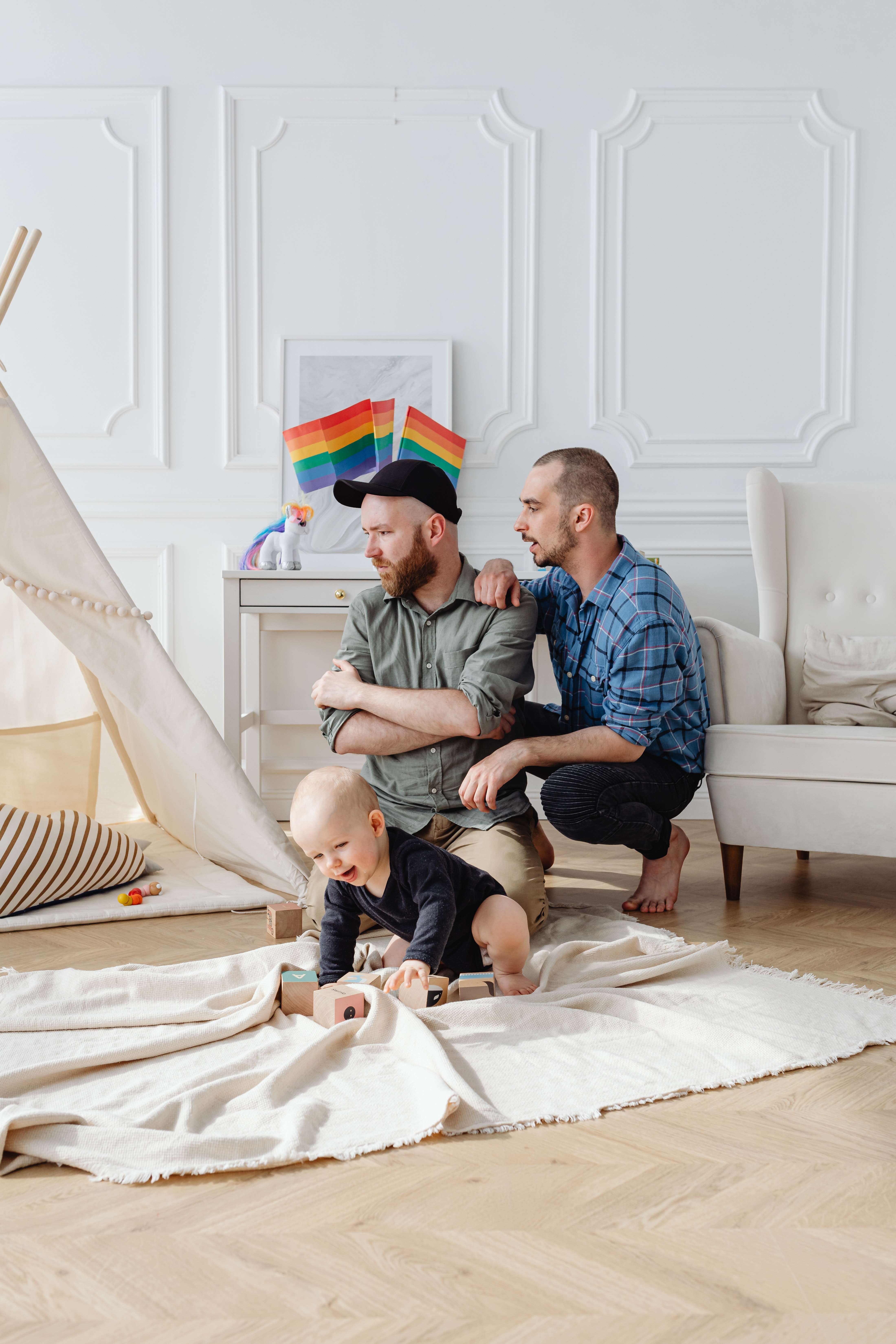Having a baby is a major life transition. So if you are having marriage problems after your first baby, you are not alone. No one is ever really prepared for the reality of becoming a parent. Education is incredibly helpful, but you still don’t know what you are getting into until you are in it.
So here are some tips to help alleviate marriage problems after your first baby.
Start an open dialogue about roles and responsibilities.
There are so many things to keep up with like managing household chores, nighttime feeding, changing, bath time, work, childcare, etc. It may sound funny but if you don’t talk about these things, you are setting yourself up for unnecessary conflict.
What I found for myself and see in my clients who don’t have an open dialogue is built-up resentment. This is due to consciously or unconsciously stepping into roles that were modeled by your parents which may or may not be appropriate for you and your partner today.
When you keep an open dialogue, then you are working together as a team. Collaboratively choosing roles that fit your strengths and interests as well as agreeing on what to let go of or outsourcing if possible will reduce the risk of marriage problems after your first baby.
An open dialogue means you can revisit the conversation if you have more children or as children get older and life changes.
It is important to get educated on Perinatal Mental Health and how it can impact both mom and dad.
Experiencing a perinatal mood or anxiety disorder (PMADS) is very common – 1 in 5 women and 1 in 10 men. You may have also heard of it referred to as postpartum mood disorders. The more awareness you have about your risk factors, the more you will be able to make choices that can help prevent or minimize your experience.
Untreated PMADS can put your marriage at risk.
Sometimes when people are in the midst of struggling with their mental health, certain behaviors like isolating, lashing out, blaming, or denying can bleed into the marriage. And often, they are unaware of it themselves. If you notice your partner isn’t acting like themself, then they are probably struggling with something.
If this is the case, then you can compassionately ask them questions like:
- What is going on?
- You don’t seem quite like yourself. How can I help?
- What do you need from me?
If you are suffering from a PMAD, you may not feel like yourself. So you may be acting in a way that isn’t congruent with your core self. But that is ok, and you don’t have to suffer. Let your partner know what you are experiencing and work with them to get the support you need. You do have options for feeling better.
Marriage problems after your first baby can often be a result of feeling invisible. There is an analogy called the “candy wrapper” that is often used to describe what it feels like to the parents after the baby arrives. The baby is the candy and the wrapper is the parents. Once you take the candy out of the wrapper, the wrapper gets thrown away and the candy is enjoyed and celebrated.
This often leaves parents feeling unimportant and no longer in need of being cared for. But you never stop needing to be taken care of. It doesn’t just take a village to care for the baby, but to take care of you, the parents, as well.
Another common issue that causes marriage problems after your first baby is competition over who has it worse.
Often the parent who stays home with the baby can have the perspective that the partner who goes right back to work has it easier. The working parent gets to leave when they want to. They can go to lunch when they want to. Without thinking about childcare they even get to shower when they want to. They are also able to get more sleep because they have to go to work and perform.
The partner who goes to work can have the perspective that staying home with the baby is easier and more fun. They can believe that their partner can nap when they want to. They can lay around to watch tv. And they get to spend all of that time with the baby and witness all of the “firsts.”
But the truth is, it is hard for both. It is important to be able to share your experience with one another without comparing, but really listening.
(I highly recommend reading Happy With Baby: Essential Relationship Advice When Partners Become Parents. It was written by my good friend and colleague, Catherine O’Brien. She is a marriage and family therapist who works with couples transitioning into parenthood. In the book, she shares some of her and her husband’s experiences as first-time parents, as well as some of her clients, with guidance on ways to communicate and support one another.)
Self-care is critical for both partners.
One part of adjusting to parenthood is coming to terms with the feeling that you are always on. It is one thing to take care of yourself, but it is another thing to take care of a baby that needs attention and care 24/7.
This is where your village or support system comes in. If you only rely on each other for breaks or rest, you are setting yourself up for marriage problems after your first baby.
Don’t be afraid to ask for help. All parents need help, all of the time, no matter how little or big their child is. Asking for help is an important parenting skill – just like learning how to change diapers or learning your baby’s hunger or tired cues.
This also gives time for grandparents, aunts, uncles, Godparents, etc. to establish their own relationship with your baby. And believe it or not, you weren’t meant to be with your baby 24/7 indefinitely.
Having time for you and your partner to reconnect as a couple is important.
The spontaneity of intimacy isn’t as easy with a baby. Neither is focusing on connection.
While marriage is always work, after you become parents, you need to be very intentional about making time for your marriage and your relationship. Another book on this subject I highly recommend is John Gottman’s book And Baby Makes Three.
Having a baby can be an exciting next step in continuing to grow, deepen and strengthen your relationship. Although it can be stressful, these tips can help you both adjust to parenthood together as a team instead of in isolation.
Jacqueline V. Cohen is a Licensed Professional Counselor and ADHD Certified Clinical Specialist Provider, who specializes in perinatal mental health. You can connect with her by email or to learn more about her practice and specialties, visit her website.



